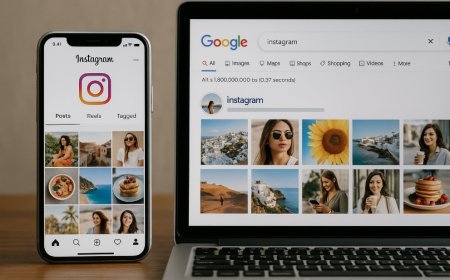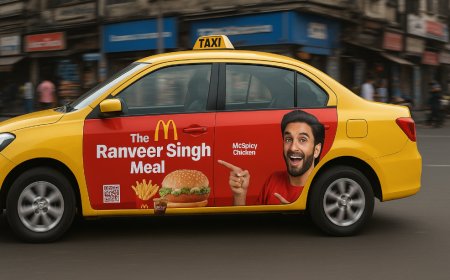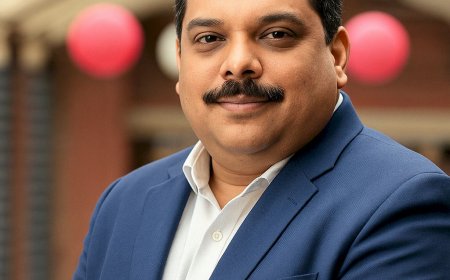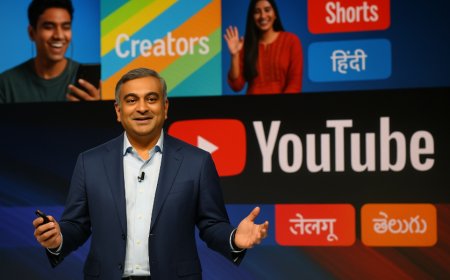Eco-Intelligence in Martech: Using AI for Cleaner, Smarter Campaigns
AI in Martech is transforming not just how marketing works—but how sustainably it operates. Discover how artificial intelligence is helping brands go green while connecting with audiences more meaningfully.

Introduction: A Greener Future for Marketing
Marketing has always been about reaching the right people—but today, it also has to be about doing it responsibly. As climate concerns grow and digital fatigue rises, brands are rethinking their Martech strategies to be not just efficient, but sustainable and human-centered.
This is where Artificial Intelligence (AI) steps in—not as a cold algorithm, but as a catalyst for smarter, greener, and more empathetic marketing.
What Is Sustainable Martech?
Sustainable Martech combines traditional marketing technology with strategies that minimize environmental impact, reduce waste, and prioritize long-term human value over short-term metrics.
It includes:
-
Reducing carbon footprints of ad tech and data centers
-
Using AI to optimize resource usage (energy, bandwidth, time)
-
Minimizing digital pollution (like intrusive ads or irrelevant emails)
-
Building ethical, inclusive customer experiences
This is not just about being “eco-friendly”—it’s about designing marketing systems that respect people and the planet.
1. AI Optimizes Campaign Efficiency—and Energy
AI-powered platforms are helping marketers do more with less. Here's how:
-
Predictive analytics reduce the need for trial-and-error campaigns
-
Smart audience targeting avoids wasted impressions and ad spend
-
Real-time optimization means fewer A/B tests, saving time and server load
By minimizing inefficiencies, AI lowers the energy costs of running massive campaigns, helping reduce the carbon footprint of digital operations.
2. Hyper-Personalization Reduces Digital Noise
AI allows marketers to create highly personalized, relevant content—and that’s good for sustainability.
-
Fewer irrelevant messages = less data waste
-
More engagement per campaign = better ROI
-
Reduced churn = less energy spent acquiring new users
Instead of bombarding everyone with everything, AI helps marketers send the right message to the right person at the right time, cutting back on digital “junk.”
3. Automation Cuts Manual Effort and Paper Trails
Manual workflows mean longer hours, more paper, and more duplication. AI-driven tools automate:
-
Email journeys
-
Content recommendations
-
Data entry and reporting
Not only does this save time and reduce human fatigue, it also reduces unnecessary resource consumption—like printing, excessive emailing, or multiple revisions.
4. Human-Centered AI Brings Back Empathy
Ironically, AI—when used wisely—can make marketing more human.
-
AI tools can analyze sentiment and adapt tone
-
Conversational AI improves customer support
-
Inclusive AI can avoid gender and cultural bias in campaigns
These tools ensure that sustainability isn’t just environmental—it’s also emotional and social, focusing on relationships rather than just reach.
5. Measuring What Matters
Sustainable Martech shifts the focus from vanity metrics to long-term value metrics, such as:
-
Lifetime customer value
-
Engagement depth
-
Retention over reach
-
Social and environmental impact
AI can crunch this data at scale, helping marketers make decisions that balance growth with responsibility.
Conclusion: Smart, Sustainable, and Soulful Marketing
The future of marketing doesn’t just belong to the brands that are loudest—it belongs to those that are smart, conscious, and empathetic.
AI isn’t here to replace marketers—it’s here to help them do better by doing less harm. As Martech evolves, sustainability must move from being a buzzword to a built-in practice—and AI can be the bridge between innovation and impact.
What's Your Reaction?
 Like
0
Like
0
 Dislike
0
Dislike
0
 Love
0
Love
0
 Funny
0
Funny
0
 Angry
0
Angry
0
 Sad
0
Sad
0
 Wow
0
Wow
0












































